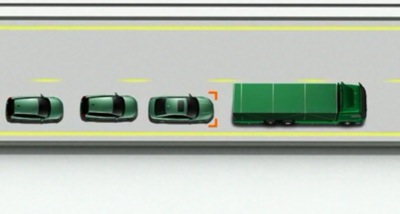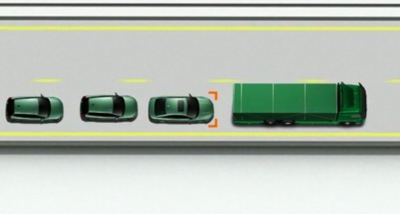 It’s 2011, where’s your self-driving car? With “road train” technology, now in development by Volvo, it could be the car you already own. Road trains, or platoons, create semi-autonomous conga lines of cars following one leader vehicle with a professional driver. Volvo’s calling the project SARTRE — Safe Road Trains for the Environment. (You can exit, though — cars can leave the train at any time.) But what are the real environmental effects?
It’s 2011, where’s your self-driving car? With “road train” technology, now in development by Volvo, it could be the car you already own. Road trains, or platoons, create semi-autonomous conga lines of cars following one leader vehicle with a professional driver. Volvo’s calling the project SARTRE — Safe Road Trains for the Environment. (You can exit, though — cars can leave the train at any time.) But what are the real environmental effects?
A little cleaner, a little safer: Volvo claims an 80 percent reduction in accidents and a 20 percent reduction in emissions with road trains. The cars all “draft” each other, exploiting air drag to increase efficiency, and the closely-controlled lines can improve congestion.
No new infrastructure: Other plans for driverless cars require significant changes to roads or vehicles. Volvo’s plan makes use of sensors that many modern cars already have, says New Scientist:
Some modern cars already come equipped with sensors and actuators to ensure that they don’t get too close to the car in front, or don’t drift out of their lane, says Robinson. SARTRE was set up to exploit these technologies, but to use them to bring vehicles closer together instead.
That’s still a car, sport: What we said about the Google self-driving car still holds true: “[J]ust taking the person out of the driver’s seat doesn’t solve all the other junk in a car trunk (human isolation, pollution, enough parking spots in the world).” It’s all well and good to make our existing car culture cleaner and safer, but let’s put some of that innovation towards reducing it, too.
Here’s Volvo’s video of how road trains work.



